Questions from Sarah Poole
I want to join the Drawing Academy, to brush up on my art skills, before I accept a job at an international school. Next fall, I will be teaching art to children ages six to high school age.
I have a BFA from 20 years ago. I fall into the category of having been to art school, but never was taught how to draw. However, accepting this new job, I must learn to do so. I feel I want to, and that I should, thus I plan to dive into your course with a new teacher’s eye. I hope to add to my incomplete art training. I can’t wait!
I have a question. Can your lessons be adapted for younger children? Do you think the basic lessons would be too technical? What is the appropriate age to begin learning to draw?
I want to pass this great foundational knowledge to my students.
Cheers!
Sarah Poole
Dear Sarah,
Many thanks for your story and questions.
Your message is yet another confirmation that the system is deliberately designed to produce a poorly educated society; it is inconceivable that drawing skills are optional for an art teacher.
It is not the art teachers’ fault, but it is misfortune to the students that a BFA comes with no requirement of having practical skills of visual communication.
You see, drawing is communication. It is like speaking, but in a non-verbal way. Therefore, without exception, it needs to be taught to every child in order to educate fully capable people.
To help answer your question regarding the appropriate age to begin learning to draw, I will rephrase your inquiry. If drawing is just another form of communication, like talking, what is the appropriate age for a child to start learning language skills?
The answer is immediately. If a child does not learn language in the first few years, he or she permanently loses such an ability and may become a handicapped member of society, perhaps for the rest of the life.
Parents need to start showing good artworks and masterpieces to their child as soon as he/she is able to see. They should take their child to traditional museums and galleries, expose them to good taste in art and beauty, and encourage drawing and painting. Needless to say, this is not happening universally. Quite opposite, many people claim they were discouraged by art teachers in schools. Some were dismissed and were told they had no talent for art.
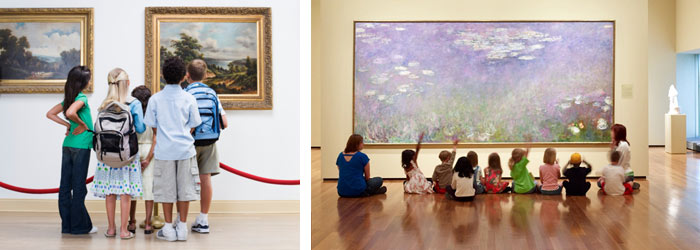
You asked if the Drawing Academy lessons can be adapted for younger children. Indeed, they can. Everyday, verbal language is adapted for children. Children continue to learn verbal language by hearing others speak. They ask questions and receive explanations of what new words mean. The same applies to art. Daily exposure to art can facilitate learning, even at a young age.
Being a great teacher is a talent and a passion, not a profession or a job. I hope you have a drive that will keep you moving.
To your creative success,
Vladimir
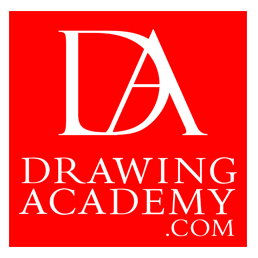
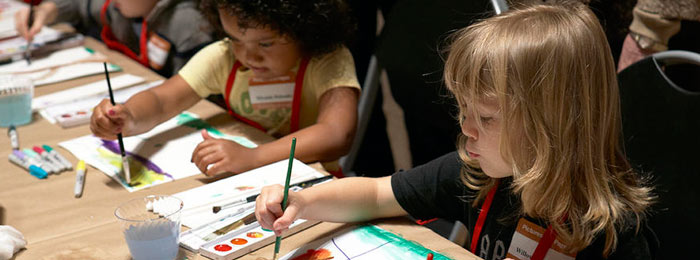
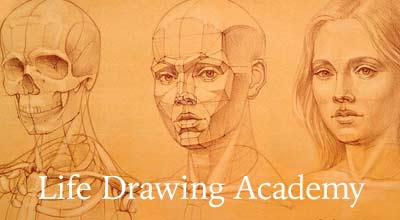
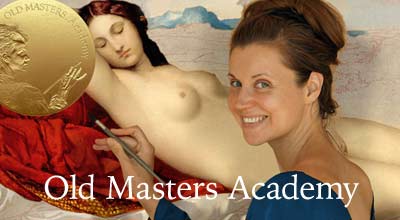

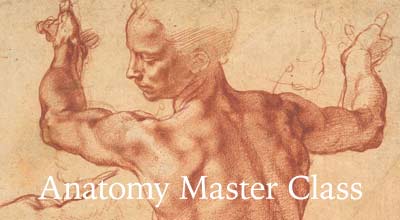
I heartily agree, thank you!
I have three lovely boys whom I homeschooled for the last four years. I frequently exposed them to art, we went to galleries, and included art assignments in all our subjects. I also did my best to teach them drawing, painting, etc. Now, we are all in the international school, they as students, my husband as a director, and me as a future art teacher. I am very committed to understanding your wonderful fundamentals and will pass them on to my future students. I also feel it is a crime that drawing is not seen as vital as other skills, such as grammar. I will be joining the drawing academy in January and, with your goal to guide us with dedicated work assignments, I am excited to think I can establish, for our school, a curriculum that is better than the curriculum I experienced in the past.
I am much obliged for your response.
Sarah
Hello,
I am not an expert on the subject, but I am a homeschooling parent as well. I agree we should expose our kids to art early on. But I just want to point out that the drawing activities they are taught must correspond to their development. As I’m sure you know, young children are less concerned with realism than older ones. We shouldn’t worry too much about technical accuracy when a toddler tries to draw a dog or a car, or worse show them “how it’s done” unless they ask first. We ask simple questions or make suggestions to encourage the child to observe and remember. A small child will tell you when they can’t draw something and want help.
As they mature, self-consciousness and the desire for realism will emerge naturally in kids. I believe that’s when they’ll be ready for more specific instructions. It will happen sooner and more acutely with some than others. And that’s the beauty of a solid drawing course. You’ll learn rules and techniques that you can teach to others, so that they can draw on their own without imitating you. Just make sure you don’t infringe on copyrights. :-)
Also, it’s wonderful to show kids your own drawings. But it mustn’t turn into a comparison, where the child is pressured or feels his or her work is inferior to what an adult can produce. We need to be careful here. We want to show a child what a mature drawing is like and show him how it’s done, without holding anything back. But we don’t want to overwhelm him either with something that may still be beyond him. He or she needs to understand that drawing isn’t some mystical gift that only an elite few possess by nature, but rather a skill that anyone with the desire, maturity and discipline can acquire. I wouldn’t even utter the word “talent” to a beginner, especially a child. Talent becomes apparent as one works.
I think the age appropriateness was/is your concern and why you asked the question. You said your students will be ages 6 to high school. Their skill levels and needs will vary a lot, I think. I don’t have experience with that and obviously, I’m not a teacher. You’ll have to be adaptable and creative to meet the needs of each student. But you’re a homeschooling parent, so I’m sure you have that ability anyway! It’s not that I felt you needed advice, but I thought other parents there might find this bit of thought useful. Good luck and have a wonderful new year!
Also, to anyone reading this: you might want to look at the Augsburg drawing books. They are written for grades 1-8 if I’m not mistaken. They are free public domain books at Google Books and other sites.